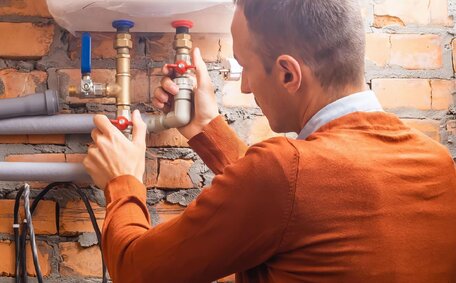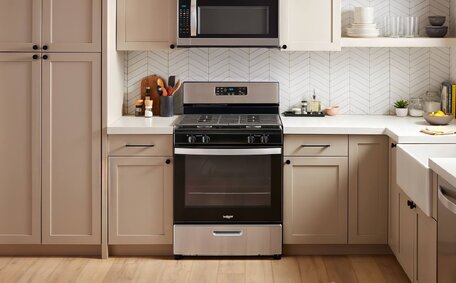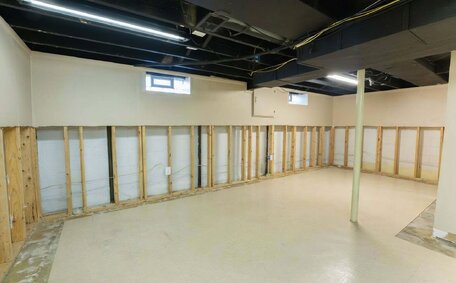Introduction: The Baking Soda and Vinegar Cleaning Myth
Many people advocate the use of baking soda and vinegar for household cleaning, citing its effectiveness. The concept hinges on the idea that when these two powerhouses, baking soda and vinegar, are mixed, a chemical reaction occurs that releases carbon dioxide gas and bubbles that help lift dirt and grime away. Cleaning with vinegar can help clean surfaces effectively when combined with baking soda for a natural solution.
However, the reality about the effervescent theatrics of baking soda and vinegar is that while they don’t lack visual pizzazz, they don’t significantly augment cleaning efficacy. The cleaning benefits of baking soda and vinegar are limited for many tasks.
We’ll dive into the details about baking soda, uncover the truth of its partnership with vinegar, evaluate its efficacy, and consider superior alternatives for various home cleaning requirements.
The Chemistry Behind the Fizz
The acid-base chemical reaction from combining baking soda with vinegar may dislodge dirt particles. When these two reactants meet, the acid protonates the carbonate ions, forming carbonic acid which then rapidly decomposes into carbon dioxide gas and water.
The baking soda base, known for its high pH, can also act as an abrasive for cleaning. Distilled white vinegar is an acid, characterised by its low pH.
The equation for this reaction is:
- Baking soda 1 (sodium bicarbonate): NaHCO3
- Vinegar (acetic acid): CH3COOH
NaHCO3 + CH3COOH → CH3COONa + H2O + CO2
While the reaction can lift light dirt and stains, it ultimately leaves behind sodium acetate in water, which has limited cleaning properties.
It’s the release of the gas that causes all the fizzing. So in plain terms, the products of the reaction that occurs when the two chemicals meet each other include sodium acetate, water, and carbon dioxide gas.
While the bubbles provide some surface cleaning action, However, the mild abrasiveness of baking soda does enhance gentle scrubbing, underscoring its utility.
Limitations of the Baking Soda and Vinegar Reaction
While the fizzing reaction of soda vinegar can look impressive, there are some key limitations to rely on it as your main cleaning solution:
- The acid-base reaction neutralises the pH of the vinegar, diminishing the cleaning power from its acidity.
- The sodium acetate left behind does not have significant cleaning ability, especially for tough clogs or stubborn blockages.
- The mixture can be corrosive to some materials like chrome or stainless steel pipes over time.
The main limitation is that once the dramatic fizzing dies down, you are left with mostly water and a neutralised sodium acetate solution. This does not have enough cleansing ability to cut through serious buildup on its own.
While baking soda offers gentle abrasion and the bubbles surface agitation, for difficult tasks like blocked drains, the mixture with vinegar falls short in strength and dissolving capability.
Stronger commercial drain cleaners that utilise salt water to react with organic matter are more effective for lifting grease and clearing blockages. Using baking soda vinegar can be beneficial for maintenance cleaning but falls short for severe clogs.
When Baking Soda and Vinegar Can Be Useful
Considering the method’s limitations for challenging tasks, I assessed the situations where a baking soda and vinegar solution could be effective:
- Helps dislodge minor clogs - The fizzing action can help loosen small blockages in sinks and drains.
- Cleans soap scum buildup - The acid in vinegar dissolves soap residue effectively.
- Removes mineral deposits from shower head - Vinegar dismantles hard water stains, including calcium and limescale, with remarkable effectiveness.
- Degreases kitchen sinks - Sprinkle by mixing baking soda over the area as a soft abrasive that works to lift grease.
For mild cleaning challenges, applying a mix of baking soda and white vinegar can effectively address problem areas:
- Combine 2 tablespoons baking soda with vinegar into the spray bottle
- Shake well before each use to dissolve the baking soda in the vinegar and activate the mixture.
- Spray it uniformly over inside of sinks, shower doors, tiles, and grout to lift soil and stains
- Wipe down the area with an old toothbrush to gently scrub away residue
- Rinse thoroughly with paste baking soda water
To use vinegar effectively, start with a spot test on a small area. For optimal results, understand how to clean with this effervescent concoction and ensure surfaces are thoroughly rinsed post-cleaning.
While acknowledging the DIY cleaning benefits of a baking soda mixture, its limitations are evident for serious clogs or heavy build-up. Consult a professional plumber to get rid of severe blockages.
How to Properly Use Baking Soda and Vinegar
Despite its limitations, using a baking soda and vinegar mix correctly can be beneficial for certain cleaning tasks.
- Combine one cup baking soda with one cup vinegar into a spray bottle
- Ensure careful mixing of the ingredients before each use to activate the cleaning agents.
- To clean sinks or showers, apply the vinegar solution directly onto surfaces, allow it to sit, then gently scrub with a damp cloth or brush.
- For minor drain clogs, pour half cup of the mixture directly down the drain, allow it to work its magic for 15 minutes, then rinse away with boiling water
- Always thoroughly rinse surfaces afterward with clean water
- Test on a small inconspicuous area first to check for any damage to materials
Here are essential tips for using this mixture effectively:
- Use more vinegar in equal parts with each ingredient for optimum results
- Shake before then spray vinegar to initiate the reaction
- let sit few minutes on surfaces to allow ingredients to work
- For more cleaning power, apply some additional effort and gently scrub with a brush.
- Rinse treated areas thoroughly after cleaning
- Use only baking soda and vinegar for maintenance cleaning, not for tackling severe clogs
Eco-Friendly Cleaning Alternatives
While suitable for light cleaning, there are more effective eco-friendly alternatives available for tackling tougher jobs:
- Castile soap - Plant-derived and biodegradable, great at cutting through grease
- Borax - Naturally occurring mineral that dissolves soap scum
- Paste baking soda - As a paste, baking soda gently scrubs without toxicity
- Hydrogen peroxide - Can clean and breaks down stains without harsh chemicals
- Vinegar - Acidity tackles water stains from deposits and mineral buildup
- Essential oils - Natural antibacterial properties to disinfect surfaces
When creating your own eco-friendly cleaners, some effective combinations include:
- For effective stovetop cleaning, mix Castile soap, baking soda, vinegar and warm water.
- Add baking soda to your laundry detergent with borax to tackle heavy stains.
- Hydrogen peroxide and baking soda help clean toilet bowl rings effectively
- Disinfect kitchen counters using a solution of vinegar water and essential oils.
Opt for plant-based, non-toxic cleaning products whenever possible. And consider microfiber cloths which lift dirt without the need for cleaners. Start protecting the environment at home with small daily choices.
Contact Us for Environmentally Responsible Plumbing Services
At Ashfield Plumbing, we are committed to helping you find out about high-quality plumbing services while protecting the environment. When it comes to tackling drain blockages, check out our state-of-the-art equipment and 100% biodegradable products that will clear clogs without harming pipes or the environment.
Our expertise includes installing eco-friendly fixtures like low-flow toilets, faucets, and shower heads to significantly reduce water use. Our team is up-to-date with the latest water-saving technologies to help lower your bills and conserve water.
When making repairs, We focus on repair-first solutions over replacements to extend product lifespan. We salvage existing parts, extend system lifetimes through maintenance, and recycle defective materials. This saves energy and money while keeping functional equipment out of landfills.
Ashfield Plumbing is dedicated to providing reliable plumbing solutions with a commitment to environmental health and sustainability. Serving Ashfield and the wider Sydney area, we prioritise integrity and eco-friendly practices.
Discover our eco-friendly plumbing services or book an appointment by calling 1300 349 338 or emailing jobs@ashfieldplumbingservices.com.au. We are eager to meet your plumbing needs responsibly and sustainably.






